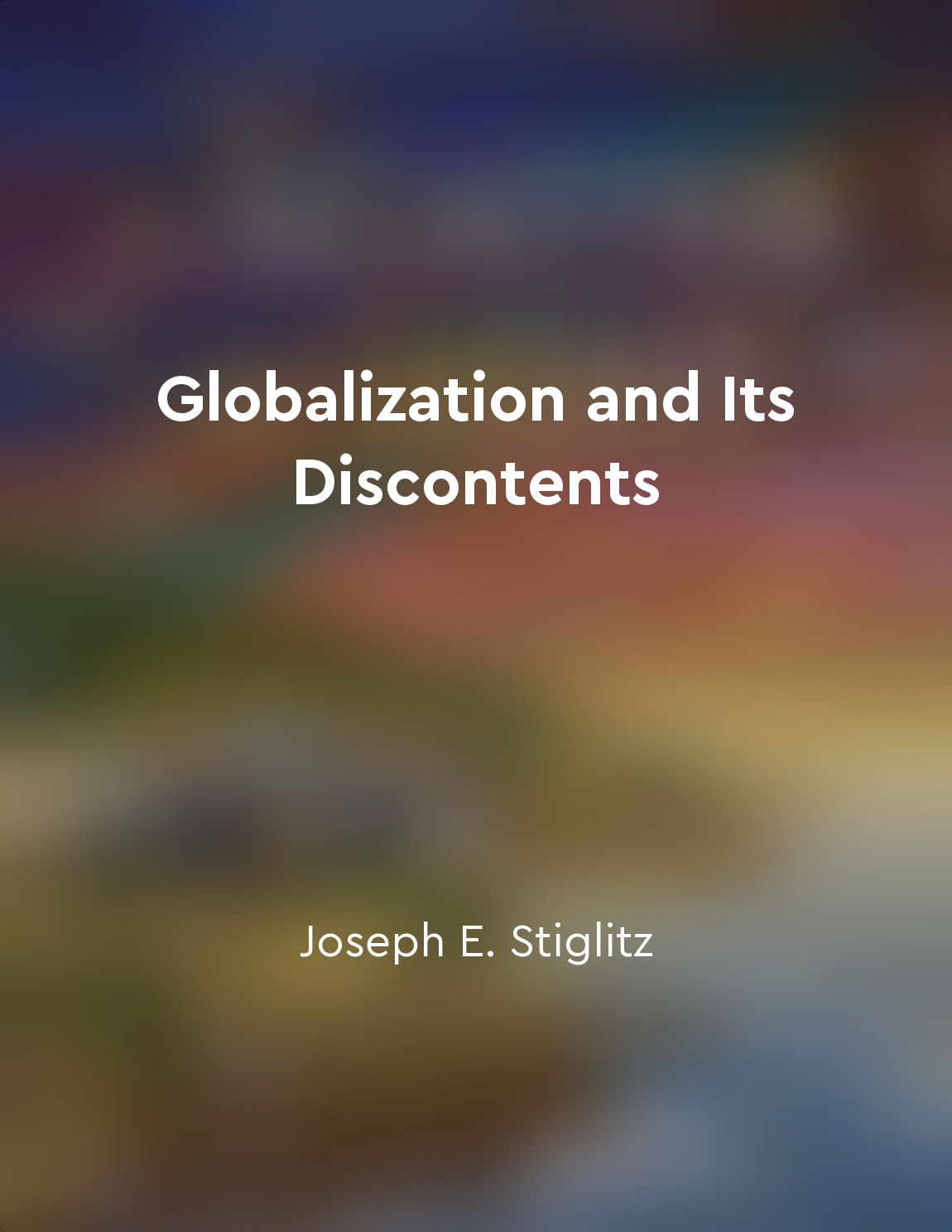Audio available in app
Extractive economic institutions hinder economic development from "summary" of Why Nations Fail by Daron Acemoglu,James A. Robinson
Extractive economic institutions are characterized by a few individuals or groups who hold power and use it to extract resources from the rest of society, rather than encouraging productive activities. These institutions create a negative cycle where political power is concentrated in the hands of a few, who then use this power to maintain their control over economic resources. This results in limited economic opportunities for the majority of the population, as resources are not allocated efficiently or equitably. The extractive nature of these institutions stifles innovation and entrepreneurship, as individuals are discouraged from investing in new ideas or businesses due to the high levels of corruption, lack of property rights, and unstable legal systems. Without a level playing field, where individuals can trust that their investments will be protected and rewarded, economic development is severely hampered. Furthermore, extractive economic institutions often lead to widespread poverty and inequality, as resources are hoarded by a small elite at the expense of the broader population. This creates a vicious cycle where the rich get richer, while the poor remain trapped in a cycle of poverty and deprivation. In such a system, economic growth is limited, as the majority of the population is unable to access the resources and opportunities needed to improve their standard of living. In contrast, inclusive economic institutions create a positive cycle where political power is distributed more evenly, property rights are protected, and individuals are incentivized to invest in productive activities. This fosters innovation, entrepreneurship, and economic growth, as individuals are able to trust that their efforts will be rewarded and that they will have the opportunity to better their lives.- The concept of extractive economic institutions hindering economic development highlights the importance of creating inclusive institutions that promote equal opportunities, protect property rights, and encourage innovation. Without these fundamental components in place, societies are unable to achieve sustainable economic growth and development.
Similar Posts
Trust is essential for societal progress
Trust is the foundation upon which progress is built. Without trust, societies cannot function efficiently. When individuals tr...

Specialized support mechanisms can foster industrial development
The provision of specialized support mechanisms can play a crucial role in facilitating the development of industries in emergi...
Botswana's inclusive institutions fueled its economic success
In Botswana, the presence of inclusive institutions has played a crucial role in driving economic success. These institutions h...

Nationalism emerged as dominant political ideology
In the modern era, nationalism has become the prevalent political creed, shaping the destinies of billions of individuals aroun...

A new approach to globalization is needed to create a more equitable and sustainable world
The current model of globalization has failed to deliver on its promises of prosperity and progress for all. It has instead led...
Competition fosters innovation and growth
The idea that competition is the driving force behind innovation and growth is a fundamental principle of a free society. When ...
Societal wellbeing dependent on economic stability
Societal wellbeing is inextricably linked to the stability of the economy. When the economic system is in turmoil, the very fab...
Economic facts and fallacies in public discourse
Economic facts and fallacies in public discourse are often misunderstood or misinterpreted, leading to flawed policies and deci...
The Arab Spring failed to establish inclusive institutions
The Arab Spring was a series of uprisings in the Middle East and North Africa that aimed to overthrow autocratic regimes and es...

